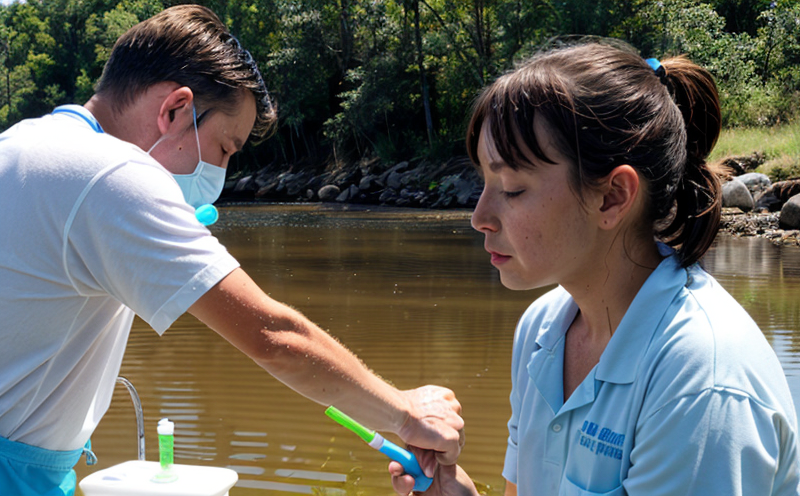Water Quality Testing
Water quality testing is a critical process in environmental monitoring and compliance. This service ensures that water samples meet stringent standards set by regulatory bodies such as ISO 62235:2019, ASTM D874-19, EN 12268-1 to -4, and IEC 62709:2017. The goal is to provide accurate, reliable data that can inform decision-making processes in various industries.
Water quality testing encompasses a wide range of parameters including pH levels, temperature, turbidity, conductivity, dissolved oxygen, chlorophyll-a concentrations, and more. These tests are essential for understanding the health of water bodies and ensuring safe drinking water standards. The testing process involves the collection of samples from various sources such as rivers, lakes, oceans, and wastewater treatment plants.
The laboratory uses advanced instrumentation to ensure precision in measurements. For instance, a pH meter can measure acidity or alkalinity with high accuracy, while an atomic absorption spectrophotometer is used for trace metal analysis. The results are then analyzed against set benchmarks to determine compliance with regulatory standards.
Water quality testing plays a pivotal role in several sectors including municipal water supply, industrial processes, agricultural runoff control, and environmental conservation efforts. By providing comprehensive reports on water quality, the laboratory supports stakeholders in making informed decisions that contribute positively to public health and the environment.
Industry Applications
Water Quality Testing is widely used across multiple industries:
- Municipal Water Supply: Ensuring safe drinking water for millions of people.
- Industrial Processes: Monitoring process water to prevent contamination and maintain efficiency.
- Agricultural Runoff Control: Detecting pollutants from agricultural activities that could harm aquatic ecosystems.
- Environmental Conservation: Supporting efforts to protect endangered species and habitats.
| Industry Sector | Application Details |
|---|---|
| Municipal Water Supply | Regular testing ensures compliance with drinking water standards set by regulatory bodies like WHO, EPA, and NSF International. |
| Industrial Processes | Continuous monitoring helps in identifying potential sources of contamination and implementing corrective measures promptly. |
| Agricultural Runoff Control | Evaluating the impact of agricultural practices on water quality to mitigate pollution risks. |
| Environmental Conservation | Supporting long-term conservation projects by providing baseline data and monitoring changes over time. |
Customer Impact and Satisfaction
The accuracy and reliability of water quality testing directly impact customer satisfaction in various ways:
- Municipal Authorities: Receive data that helps them provide clean, safe drinking water to the public.
- Industrial Clients: Ensure their processes are not compromised by contaminated water, leading to reduced downtime and higher efficiency.
- Agricultural Producers: Gain insights into runoff impacts, enabling better management practices that protect water quality.
- Environmental Organizations: Use data for conservation efforts, ensuring sustainable use of natural resources.
Clients appreciate the detailed reports and actionable recommendations provided by our laboratory. This not only enhances their compliance with regulations but also supports their broader goals in maintaining a clean environment.
Competitive Advantage and Market Impact
The ability to provide precise, timely water quality testing gives our clients a significant competitive edge:
- Innovation Leadership: By staying ahead of regulatory changes, we help clients innovate in sustainable practices.
- Compliance Assurance: Ensuring full compliance with international standards helps clients avoid costly penalties and legal issues.
- Risk Management: Early detection of water quality issues minimizes operational risks and potential disruptions.
Our services contribute to broader market trends towards sustainability and environmental responsibility. By supporting our clients in meeting these goals, we are part of a larger movement that benefits both the economy and society.





